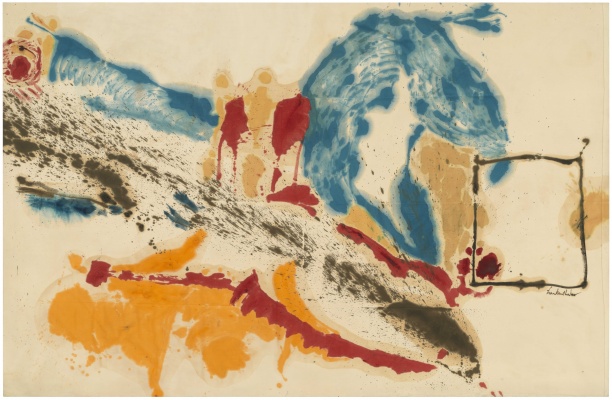Descripción de la Exposición
Almine Rech is delighted to present “Asterismos”, Artur Lescher’s first exhibition at the gallery in Paris.
Over forty years or so, Artur Lescher has imposed a body of work easily identified by rigorous geometric forms and the extremely accurate dialogue he constructs between his sculptures and the space that displays them. Asterisms – the title of the exhibition – are noticeable patterns or figures composed by stars and visible from Earth. Unlike constellations, these geometrical figures are not recognized by science and often not clearly defined. The astronomical objects concerned are brought together arbitrarily by interpretations and narrations that have left humankind in awe since antiquity: Callisto, for instance, famously became Ursa Major, the Big Dipper. Their existence only comes together through the beholder’s ability to make up stories, observe and dream.
This neglect for scientific precision may initially confuse viewers of Artur Lescher’s otherwise perfectly crafted and balanced pieces: their eye is so powerfully guided in the perception of volumes, lines, their perfect integration into space, that it seems unimaginable that they are not the result of innumerable scholarly computations and precision engineering.
In fact, the figures, often named with cosmic undertones, are a result of the artist’s intractable disposition for perfection in creating ratios intrinsic to the works, but also in how they relate to the proportions of the space in which they are displayed. All works, their forms incessantly renewed, are arranged in the gallery as if a cosmologist had drawn up a celestial map.
The arrangement across the gallery’s three rooms composes a constellation, interpreted by the artist, which invites the beholder to a kind of astral voyage. The stars converse, repel and attract each other. Here, the references and suspension will not fail to remind visitors of Foucault’s pendulum hanging from the Pantheon dome, and the experimental origin of this attempt to demonstrate the earth’s oscillation without external observation is reminiscent of Sextante, Alnilan or even Cardenal in its ability to express forces beyond our understanding. Lescher’s pieces are all the more fascinating as their extreme precision and formal execution, along with their relationship to the architecture, beyond their own geometry, also reflect the extreme relativity of time and space…
This dialectic of forms was first noticed in Artur Lescher’s work at the 19th São Paulo Biennial, in 1987, with his remarkable Aerolitos, an installation of two suspended, metallic polygonal volumes both complimenting and defying the modernist architecture of Oscar Niemeyer. Artur Lescher has since become one of the most famous post-minimalist artists of his generation; his work was on view in 2017 at the Palais d’Iéna in Paris, where his hanging pieces dialogued with and measured against the hypostyle hall’s concrete pillars. This was further illustrated by works like Infinito triple, proof of Lescher’s unflinching inventiveness: his forms do not arise from a clearly-defined mathematical repertoire, but rather from his own perception of space and formidable sense of poetry. It restores the essential worth of perception and empiricism, which is to justify dimensions and scales by simply taking the viewer’s eye as a standard. A mobile, changing reality, like a pendulum oscillating under the influence of magnetic fluctuations, as real yet elusive as the movement of stars and gravitational interactions.
Thus, stripped of scientific objectivity, asterism becomes the power common to all human civilizations in time and space to mentally project and draw with the stars, to envision the position of humankind in the universe. Artur Lescher’s work is frequently described by Brazilian art historians, such as Aracy Amaral, as the “poetics of space”, an expression which aptly reflects the completion of a form of artistic discourse revealing to viewers the power of their own imagination.
Matthieu Lelièvre
Translated by Alexandre Carayon

Exposición. 12 ene de 2022 - 23 feb de 2022 / Almine Rech - Paris / Paris, Ile-de-France, Francia

Exposición. 12 ene de 2022 - 23 feb de 2022 / Almine Rech - Paris / Paris, Ile-de-France, Francia

Exposición. 12 ene de 2022 - 23 feb de 2022 / Almine Rech - Paris / Paris, Ile-de-France, Francia

Exposición. 11 abr de 2025 - 28 sep de 2025 / Museo Guggenheim Bilbao / Bilbao, Vizcaya, España

Formación. 08 may de 2025 - 17 may de 2025 / Museo Nacional Centro de Arte Reina Sofía (MNCARS) / Madrid, España